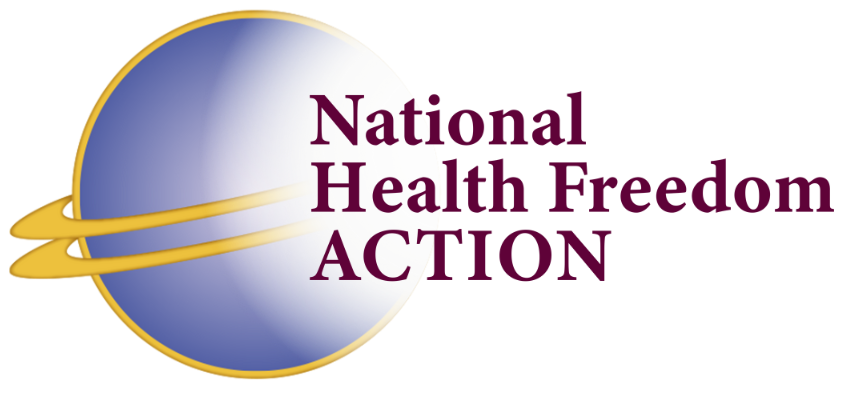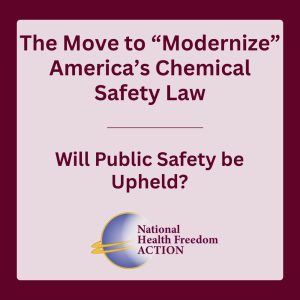
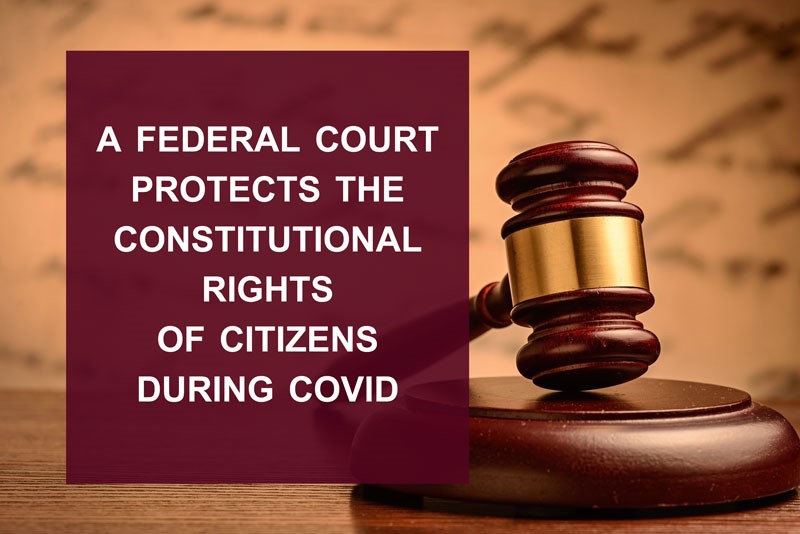
A Federal Court Protects the
Constitutional Rights of Citizens during COVID!
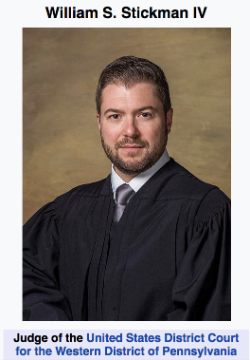
September 14, 2020, Judge, William Stickman IV, from the United States District Court for the Western District of Pennsylvania, issued an opinion declaring unconstitutional, the Pennsylvania Executive Orders on (1) restrictions on gatherings and (2) closing “non-life sustaining” businesses and directing Pennsylvanians to stay-at-home.
The federal judge cited Jacobson v. Massachusetts, 197 U.S. 11, 31 (1905) to discuss when and when not to give broad deference to state government during emergencies and to show how Courts have evolved over time in the past 100 years since the Jacobson case to be more vigilant in the protection of civil liberties and the need to apply regular constitutional scrutiny when civil liberties are at stake.
[Read Opinion Here]
For over 100 years, health freedom and medical choice advocates have been struggling under the shadow of a 1905 Supreme Court case, Jacobson v. Massachusetts, that gave broad deference to state governments to make laws in times of emergency regarding vaccines, even at the expense of civil liberties. In Jacobson a state law was considered constitutional that mandated a small pox vaccine during an emergency, charging a fine for those who did not comply.[i]
The Jacobson case has been used to justify the use of the police power of a state to attain the goals of states to protect citizens. As recent as 2016 the Jacobson case was cited to justify the constitutionality of a California law passed in the wake of a measles outbreak, requiring all children to receive certain vaccines before they could attend school or day care, and not allowing for any exemption based on personal or religious beliefs.[ii]
Since 2020 COVID and the numerous court challenges to Executive Orders that have potentially infringed upon civil liberties, courts have been able to shine a further light on the Jacobson case that gave such broad deference. Some courts including the Pennsylvania US District Court are applying current day constitutional jurisprudence to the protection of civil liberties.
Jacobson was decided over a century ago. Since that time, there has been substantial development of federal constitutional law in the area of civil liberties. As a general matter, this development has seen a jurisprudential shift whereby federal courts have given greater deference to considerations of individual liberties, as weighted against the exercise of state police powers. That century of development has seen the creation of tiered levels of scrutiny for constitutional claims. They did not exist when Jacobson was decided. While Jacobson has been cited by some modern courts as ongoing support for a broad, hands-off deference to state authorities in matters of health and safety, other courts and commentators have questioned whether it remains instructive in light of the intervening jurisprudential developments. Pg. 13 of the Pennsylvania opinion.
Will these new COVID cases impact future cases calling for protection of medical freedoms and the right to decline vaccines without coercion? Will the courts be more supportive of citizens who resist the withholding of education or employment or other regular liberties of citizens if they don’t agree to medical treatments such as vaccines? Health freedom is a fundamental right and should require the highest level of constitutional scrutiny when a government attempts to infringe on that right.
Here are some further excerpts from the 66-page Pennsylvania opinion as the court laid out its thinking as to which constitutional standard of review it would apply to the case of the Pennsylvania Executive Orders.
Over the last century, federal courts have developed a regimen of tiered scrutiny of examining most constitutional issues-rational basis scrutiny, intermediate scrutiny and strict scrutiny. The appropriate standard depends on the nature of the claim and, specifically, the nature of the right allegedly infringed. Pg. 11
The Court quotes another relevant case:
As the Supreme Court has observed “[t]he Constitution was adopted in a period of grave emergency. Its grants of power to the federal government and its limitations of the power of the States were determined in the light of emergency, and they are not altered by emergency.” Home Building & Loan Ass’n. v. Blaisdell, 290 U.S.398, 425 (1934). Pg. 29
Regarding the stay at home orders the Court states:
The orders are such an inversion of the usual American experience that the Court believes that no less than the highest scrutiny should be used…. Pg. 47
and:
The Court declares, therefore, that the stay-at-home components of Defendant’s’ orders were and are unconstitutional. Board population-wide lockdowns are such a dramatic inversion of the concept of liberty in a free society as to be nearly presumptively unconstitutional unless the government can truly demonstrate that they burden no more liberty than is reasonably necessary to achieve an important government end. The draconian nature of a lockdown may render this a high bar, indeed. Pg. 48
COVID has provided America with the distinct opportunity to test the limits of the police power of the individual states and the unique three branch architecture of the United States and its commitment to freedom. It is our hope that we will work together with all the miraculous talents that Americans have, to cope with emergencies now and in the future, in ways that do not infringe upon our most basic freedoms of life, liberty, and the pursuit of happiness.
RECENT NEWS

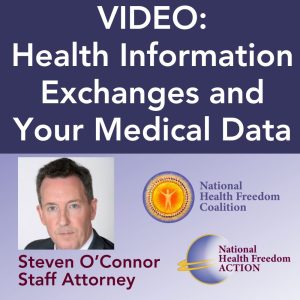
Video: Health Information Exchanges and Your Medical Data
February 5, 2026
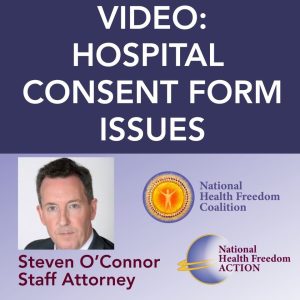
Video: Hospital Consent Forms and Health Freedom
January 29, 2026
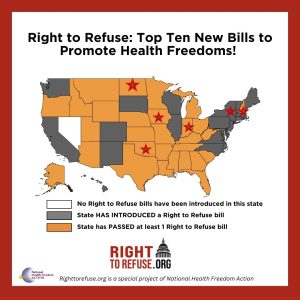
Right to Refuse: Top Ten New Bills to Promote Health Freedoms!
January 22, 2026
